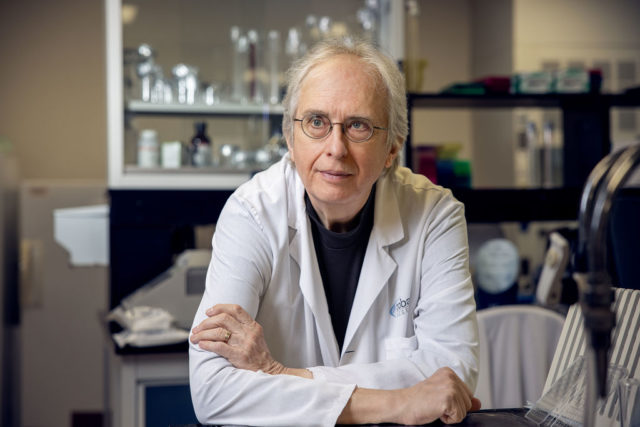Type 2 diabetes is a life-altering disease. And it’s known to cause 30 per cent of Canada’s strokes and 40 per cent of the country’s heart attacks.
Can it be cured? Not yet. But every day, Dr. Robert Hegele works with patients to improve outcomes, reduce risks and discover the disease before it takes hold.
As one of the world’s leading authorities on cholesterol, Hegele routinely advises patients on how they can live longer and reduce their risk of serious health issues. Among the more than 2,500 patients in his care, he has noticed that when a patient has diabetes and high cholesterol, a hazard warning starts flashing on their risk of suffering a stroke or heart attack.
The good news, he says, is that it’s entirely within their power to fight the risk.
In the lab, Hegele targets one tiny molecule at a time and moves one step closer to preventing the onset of diabetes.
“We used to have this idea that there’s one gene responsible for diabetes, but it’s not quite that simple,” says Hegele, an internationally renowned endocrinologist and the medical director of the London Regional Genomics Centre. It’s at the Centre where his team studies the variants in the genetic code that can cause diabetes and cholesterol disorders.
